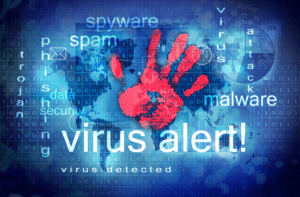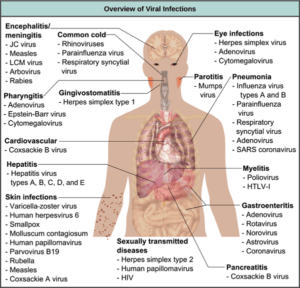Avoid and Prevent Infection
 Avoid and Prevent Infection: a reader asks…
Avoid and Prevent Infection: a reader asks…
I have an almost-new Windows 10 laptop computer. Everything I’ve read about computer viruses and such say that it’s better to not get infected than to have to clean up an infection. Is this true and why?
Yes, it’s true. Let me use an analogy: If your body contracts a virus, you get sick. The virus can attack healthy cells or organs in your body and cause irreparable damage. Some viruses can kill you. Sure, your immune system may fight off the virus and eventually defeat it, but the damage is done, and your body may never be able to fully recover. At this point in our knowledge of medicine and the human body, we can’t regrow organs.

Much like a biological virus, a computer virus can attack and destroy parts of your operating system or installed programs. Unlike a biological virus, you can fully recover from a computer virus, but the process may be quite involved. Some viruses damage a computer so deeply that the only way to restore things is to wipe the hard drive and install the operating system fresh, along with all your programs, settings and configurations, and of course your personal files. Think of this as the equivalent to a brain transplant, which we can do in the computer world, but not in the biological world (yet).
So yes, it’s better to avoid and prevent infection than it is to clean up your infected computer. It’s not just computer viruses that damage, but virtually any ‘malware’. Malware is a more generic term that includes classic computer viruses, trojans, worms, spyware, adware, ransomware, and all the other threats that can infect your computer. The term “Malware” is short for malicious software (thanks Wiki), and is any software or computer process that has a malicious intent. While some malware may not actually damage your computer’s operating system, it can collect personal information from your hard drive and transmit it to hackers – just as damaging if not more so in these days of rampant identity theft.
 Your Windows 10 computer comes with a basic immune system, called “Windows Defender” that works reasonably well against many of the malware threats. But it’s not perfect, nothing is. For folks who want an extra measure of protection (for avoidance and prevention), I recommend Malwarebytes Premium. It costs $40 per year.
Your Windows 10 computer comes with a basic immune system, called “Windows Defender” that works reasonably well against many of the malware threats. But it’s not perfect, nothing is. For folks who want an extra measure of protection (for avoidance and prevention), I recommend Malwarebytes Premium. It costs $40 per year.
What the Premium version does (unlike the free version) is to be constantly running, watching your computer and your internet connection. Anything suspicious that it sees happening will either generate a warning popup or Malwarebytes will outright block the activity to keep malware from infecting your computer. Malwarebytes can work right alongside Windows Defender, with them both providing somewhat overlapping protection.
There are other good programs that can provide protection for your computer (replacing Windows Defender) such as Bitdefender Internet Security and Norton Security Standard. My feeling is that if you already have a subscription to one of these programs, then by all means use it. If you currently just have the built-in Windows Defender, skip these and just get Malwarebytes Premium.
I should note that a google search for ‘best computer security software’ or similar searches will show a lot of what I call ‘shills’ in the results. These are online entities that purport to compare security software and tell you which is best. Stay away from these. If you want to see more unbiased reviews, check with mainstream websites like pcmag.com, tomsguide.com, av-test.org, and even consumerreports.org.
This website runs on a patronage model. If you find my answers of value, please consider supporting me by sending any dollar amount via:
or by mailing a check/cash to PosiTek.net LLC 1934 Old Gallows Road, Suite 350, Tysons Corner VA 22182. I am not a non-profit, but your support helps me to continue delivering advice and consumer technology support to the public. Thanks!








Just found out that the 30 day free version of Bitdefender will not work with Microsoft Security Essentials activated and must be uninstalled on my Windows 7 laptop which I did.
Yes, computer security protection programs don’t play nice with each other. You can run or the other, but not both. There’s only one exception for this rule that I know of: Malwarebytes. Malwarebytes can run side-by-side with your primary protection program (either Bitdefender or MSE).